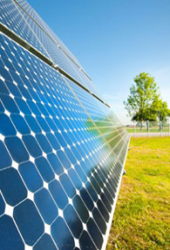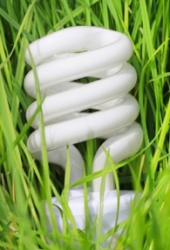To go solar, utilities must change
Published: 20 Nov 2014
Writer: Aisa Sano & Sopitsuda Tongsopit
In the US, Europe and Thailand, utilities firms’ doubts about the benefits of solar power remain widespread and may sometimes result in negative lobbying campaigns that effectively slow down the adoption of small-scale, clean renewable energy options.
“We need utilities as allies not enemies in the transition to mainstream renewable energy, and all too often the world does too little to overcome its natural concerns,” Raymond Schonfeld, Consultant at Single Market Ventures in Brussels, said in the interview with the Energy Research Institute at Chulalongkorn University.
As utility companies’ business presence is by far the largest in electricity markets in many countries, the increasing share of solar panels is a threat to the current business of utilities. In fact, in addition to the utilities, there are the “pro-utility” politicians in conservative political structures who are not fully convinced of the potential benefit of shifting to decentralised solar or other types of renewable energy generation.
In the solar energy sector, the logic of their claim is simple – you wouldn’t buy electricity from the utility if you can earn savings from the installation of a solar PV (photovoltaic) system on your roof.
Widespread adoption of decentralised, small-scale power generating options erode the financial status of utilities while reducing the need for large-scale centralised infrastructures, which have for decades been part of their core business. As a result, the utility ends up losing its market share and revenues in the power sector.
These issues are global. Even in Germany, where nearly 6% of country’s electricity consumption is provided by solar PV (as of 2013), recent studies show utilities’ perceived barriers and challenges to their business models, reasoning declining profitability. But these perceptions have not stopped PV from becoming a US$100 billion (3.3 trillion baht) annual capital investment business globally.
Nevertheless, the experience in advanced countries like the EU and the US shows us that the utility can still capture cash flows from innovative business models, such as through community solar systems and utility solar schemes.
Dominion Resources, in Virginia, is one of the American utilities that has made an early entrance into the solar business. By leasing rooftop spaces from commercial and industrial customers, they have been installing 30 megawatts of solar capacity and expect solar power to help reduce the cost of distribution system upgrades. This is quite a big change for a utility which has a monopoly in its service area.
RWE, a German utility, which used to heavily rely on revenues from coal-fired and nuclear power generation, announced in October 2013 that the company would leverage its skills and resources to become an enabler, operator and system integrator of renewable energy systems. With existing transmissions, distribution networks and 25 million customers, the utility company invented a new business model under the slogan “from volume to value”, aiming to meet customers’ service needs at the lowest possible cost.
Thailand is an excellent example of a country that can maximise solar benefits if this conservative attitude can be overcome. “The suitability of Thailand’s climate, geography and construction practices for wide solar PV deployment is undisputed, but there is still a risk that Thailand will miss the opportunity to maximise its potential,” Mr Schonfeld pointed out.
“Thailand offers realistic potential to develop a nationwide infrastructure in PV and associated technologies, and 20 gigawatts of additional capacity over 20 years should be realistic,” he said.
In fact, taking advantage of more than 100% growth rate of PV market and 2% of total installed capacity in the world, Thailand’s utilities already have diverse stakes in solar projects. Subsidiaries of Electricity Generating Authority of Thailand, which owns about 50% of power generation capacity and the transmission system, are major shareholders of a few large-scale solar farms, allowing them to earn more experiences with the solar technology and understanding grid integration challenges.
In addition, the Provincial Electricity Authority of Thailand’s (PEA) only subsidiary – PEA ENCOM – has signed agreements with a major Thai solar company to develop solar farms and provide services for rooftop solar businesses. These partnerships can strengthen Thailand’s business ventures into other Asean countries in the near future.
Utilities would have to face the threat from the distributed generation by “creative thinking and its part of the market design” said Maria Der Hoeven, IEA executive director, and Paolo Frankl, head of the IEA renewable energy division.
Conservative attitudes of utility companies toward solar power remain, and short-term interest is still the dominant mindset, despite the benefits and opportunities solar technologies can offer. Significant change can only happen when we take a more innovative view of energy transition, from perceived threats to undiscovered opportunities.
————————————————————————————————————————————————————————————————
Aisa Sano and Sopitsuda Tongsopit work at Energy Research Institute, Chulalongkorn University. This article is part of the work of Thailand’s Solar PV Roadmap Initiative, supported by the United Kingdom’s Foreign & Commonwealth Office’s Southeast Asia Prosperity Fund.
Link: http://www.bangkokpost.com/opinion/opinion/444345/to-go-solar-utilities-must-change





